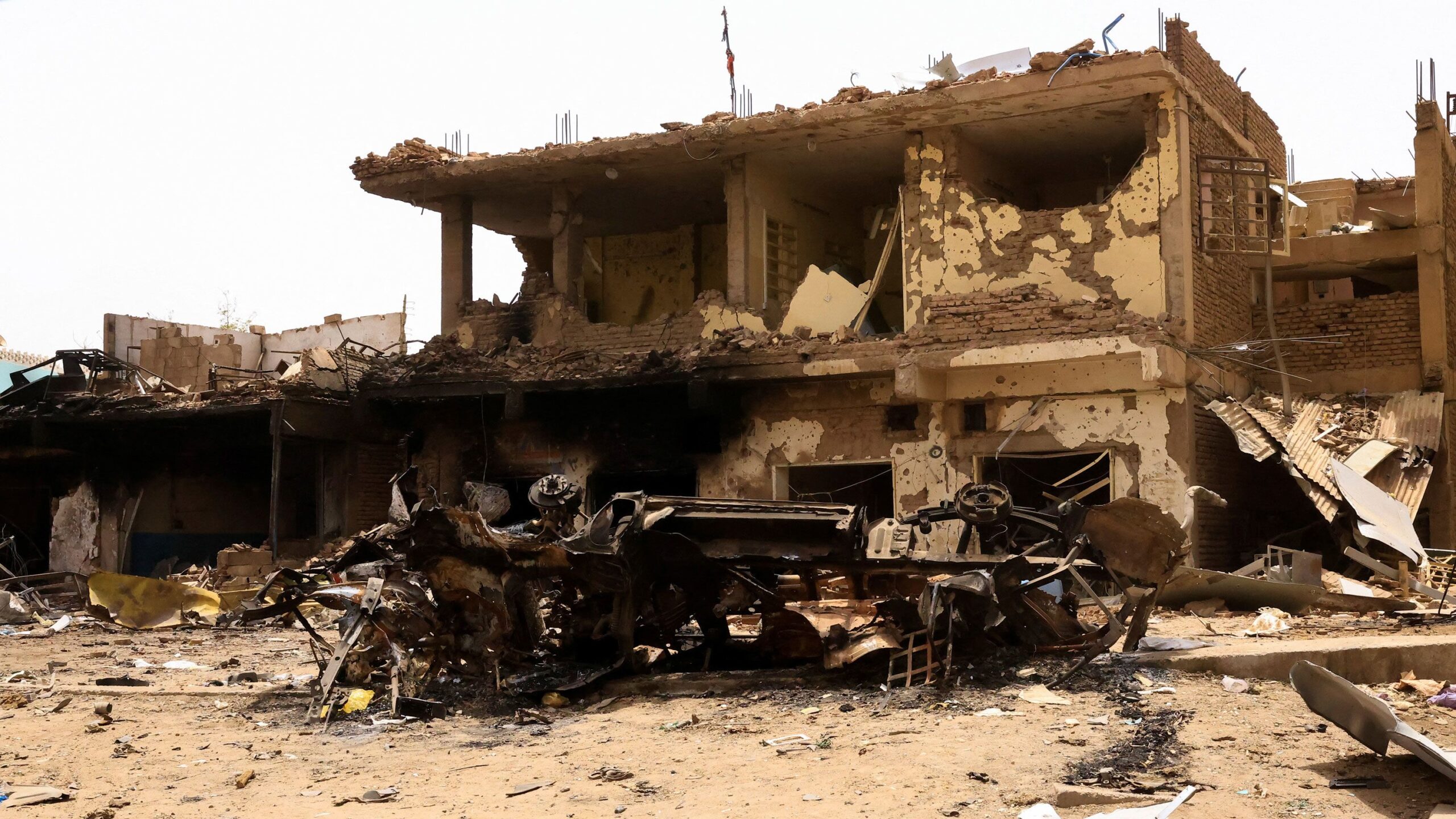
The Sudanese army and RSF traded fire Monday across the Nile River in the capital Khartoum, witnesses said, in the eighth month of a war rights groups say has been rife with atrocities.
Artillery and rocket fire criss-crossed over the river between “the army in Omdurman, on the west bank, and the Rapid Support Forces (RSF) in Khartoum North on the east bank,” a witness told AFP.
The fighting was corroborated by other residents, including local activists who say the shelling landing in civilian homes has killed dozens in recent weeks.
Since April, brutal urban warfare has raged between the army, led by Abdel Fattah al-Burhan, and the RSF, commanded by Mohamed Hamdan Dagalo.
Over 10,000 people have been killed, according to a conservative estimate from the Armed Conflict and Event Data Project, and the United Nations says 6.3 million more have been forced to flee their homes.
Negotiations brokered by the United States and Saudi Arabia — which resumed this month — have failed to make any headway, as forces grapple for control and refuse to cede territory.
“Forces attacked the Wadi Seidna (air) base”, a strategic facility just north of Khartoum, an RSF spokesman said Monday, adding they had destroyed “a C130 military transport plane and an ammunition depot”.
Over 800 kilometres (around 500 miles) southwest, witnesses in the town of Muglad in West Kordofan state reported army troops withdrawing from a base after an RSF attack on the oil-rich area.
The army, which has maintained its monopoly on the skies, sent fighter jets to bomb RSF clusters in Babanusa, 35 kilometres north of Muglad, witnesses told AFP.
But army retreats from bases have been reported repeatedly in recent weeks, as the RSF has gained territory across the vast western region of Darfur.
‘Organised campaign’
Most recently, RSF claimed control of the East Darfur state capital of El Daein last week, leaving El Fasher in North Darfur as the last state capital in Darfur under army control.
Experts, aid workers, and the United States have warned El Fasher will be the next battle ground between an army that is quickly losing ground and RSF.
In the first few days of November, tribal conflicts and ethnically motivated attacks targeting Masalit people in, areas recently captured by the RSF, West Darfur killed an estimated 800 people, according to the UN, whose presence in the war-ravaged region is limited.
Local rights monitors have placed the number of those killed at well over 1,000.
Continuing intense clashes between the RSF and army have contributed to the no-mans-land reality in the region with both forces busy fighting each other creating a power vacuum in which ethnic and tribal rivalries have long reached past a boiling point.
Survivors of the violence — among at least 8,000 who fled to Chad in the first week of November alone — reported mass killing, ethnically motivated executions, arbitrary detention, torture, sexual violence and looting, according to HRW.
The New York-based watchdog warned that the pending closure of the UN mission in Sudan and replacement with a special envoy “would significantly reduce UN scrutiny over the situation”.
Burhan announced this month an end to the mandate of the UN mission, which has since the early days of the war been operating mainly in the army-controlled east.
